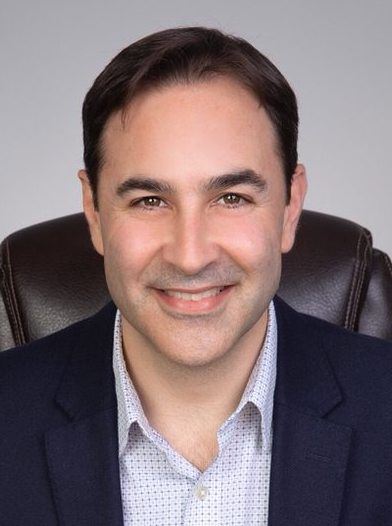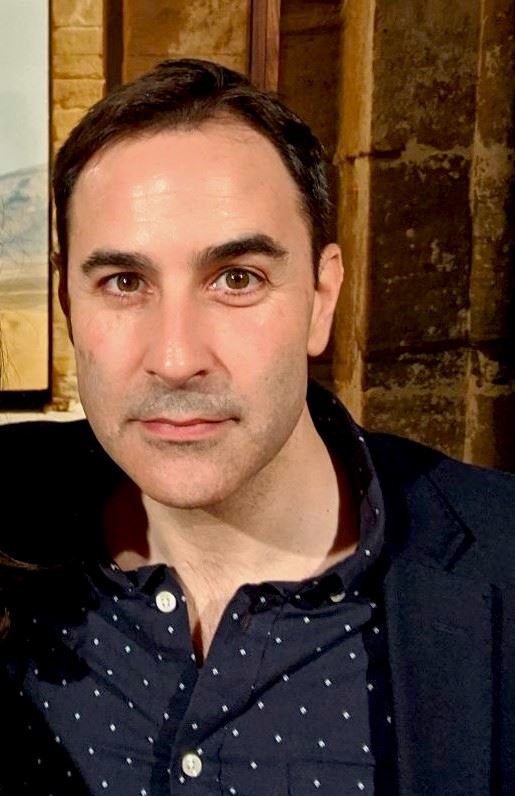 Back to Fall 2023 Newsletter
Back to Fall 2023 Newsletter
by Mark Mouro, LMFT
Almost one year ago I was sitting in my office with a couple and I had noticed the wife was making significant progress and change. I asked her about it and she briefly mentioned her unconventional work with another local therapist named Nick. After the session I immediately reached out to him to find out more. We got together for coffee and then continued to meet since I was so fascinated with what he was doing. I think its important work so I asked him for an interview. Here is my interview with Nick Sanchez, LMFT.
What is your education, training, and experience with psychedelics and psychedelic-assisted therapy?
For formal education/training, I received my certificate in Psychedelic-Assisted Therapies and Research from the California Institute of Integral Studies a few years ago. They partner with MAPS (Multidisciplinary Association for Psychedelic Studies) to ensure alignment across certification.
On a more intimate level, I have worked with numerous licensed and spiritually rooted practitioners to have my own psychedelic experiences to truly understand each compound's impact on mental health challenges and overall life fulfillment.
Which psychedelics do you work with in your practice and what is most common?
With the current legal landscape of psychedelics, I provide preparatory and integrative sessions for clients. Many clients use the preparatory sessions to explore what compound suits their needs before seeking it out. It depends on many individual components to find what compound will give the client the result they are looking for. When people initially reach out for a preparatory session, they most often initially inquire about MDMA and Psilocybin.
I also receive clients looking for "coaching" around how they may use the compounds in microdosing to have smaller experiences.
As you say on your website, psychedelic-assisted therapy is illegal in the US. But California Senate Bill 58 would decriminalize personal possession and cultivation of plant-based psychedelics and the bill also aims to establish “community-based healing” practices that promote group therapeutic use of psychedelics. As of last week, it is now on the governor's desk for signature and if he signs it, S.B. 58 is set to go into effect on Jan. 1, 2025. In addition, the Zide Door church in Oakland will be providing DMT to its members next month. Will LMFTs be able to do this work legally?
The last I heard, MAPS has just won its efforts in lobbying with the FDA to allow LMFTs that have received substantial training/certification in psychedelic-assisted therapy to receive direct access to the compounds once they are legal. Their lobbying efforts are a huge win, as the FDA originally planned only to allow psychiatrists (whether or not they received training in psychedelic-assisted therapy) access to the compounds. One of the reasons that I attended CIIS is that it allows me to take 1-2 more courses from MAPS, which would allow legal access to the compounds that can be provided by licensed/certified professionals in a therapeutic setting.
Can you say more about your belief in the power of these substances to change people's relationship with themselves and the universe.
I believe the mental health landscape will change drastically once psychedelics are legalized. My first experience with psychedelics felt like eight years of therapy within 7 hours, even after doing my therapy for over a decade and completing graduate school. I believe it provides a much more experiential approach to working with your mental health challenges that leave a far more lasting impact and desire to implement change after having an experience. You also are unable to hide from yourself. You can easily manage what you tell a therapist, whereas psychedelics allow you to confront areas of your consciousness in an intense and loving way.
Many want to feel a greater sense of meaning and purpose within their lives. We want to feel "a part" of the "bigger picture". I believe psychedelics are one way of very strongly coming in contact with these ideas and allow individuals to experience a profound sense of meaning and purpose while also reminding us of how beautiful life is when our societal thought norms are stripped away.
Many individuals will continue to use psychedelics to peel back the onion further after they have experienced relief from their mental health challenges. It becomes a powerful tool for finding direction and purpose in life.
I work with many clients about their mortality and how we can ultimately use our death anxiety to allow us to live our most fulfilling lives. Often, psychedelics bring the experience of your mortality to the top of your mind and let you ask yourself the more significant existential questions about your existence within the universe. I have found that this alone causes individuals to experience tremendous relief from their mental health challenges while guiding them toward their true calling in life.
I'm very interested in the selection of substance. Can you talk about the process of how you decide which substance is best for each client and their personal goals.
It truly depends on the experience a client is looking for. We can also think about the different compounds as different intensities of the experience we want to have. Some people seek a gentler introduction to consciousness, whereas some want to dive off the highest cliff and confront the deepest and darkest parts of themselves. I work from an existential-integrative approach, which works beautifully with helping clients identify what they want from the experience, which informs the compound they would like to use.
I think about it like a toolbox. We have different tools to apply to different scenarios. Like creating a toolbox for clients around CBT skills, I believe the same can be done with each compound.
Much like traditional therapy, we often receive much more from the process in a slow ramp-up versus going straight into the infinite abyss. Some clients can have a traumatic experience if not approached correctly.
You've mentioned that there are rituals, outcomes and processes surrounding the use of these substances. Can you elaborate on how the substances differ in this respect and what that means for the client.
I would think about it like preparing for a competition. You will prepare differently depending on the type of competition you are competing in. If you are going to be running, you will not be spending time swimming, and if you are trying to prepare to pass a licensure exam for your career, you will not spend most of your time mountain biking. The compounds would be similar. We want to prepare for the experience depending on the compound. Someone who is going to be using Ayahuasca is going to have a much different experience than using MDMA. The rituals, outcomes, and processes will be generally similar, with some fine-tuning depending on what compound a client wants to experience.
I see that preparatory, experience and integration are the main facets of your approach. Can you give an example of how many sessions and how much time each of these take on average?
Usually, a client does about three preparatory sessions. I conduct these as traditional sessions that run 50 minutes in length. The focus is a mixture of getting a landscape of how to prepare for a journey, identifying material that could show up, and how they could effectively work with it while on the journey. Some clients may need more if they have never been to therapy before and it is their first time unpacking some life experiences.
For integration, it depends on the experience that the individual has. I often do one integration session and will have another a month later. Integration sessions are more around how to incorporate the material and realizations that came up in their journey, and the length of ongoing sessions will depend on a client's ability to follow through with their identified action steps.
Integration is vital as that is where the "work" is. The compounds themselves do not "fix" clients. It is the integration they do after that changes their mental health and overall quality of life. The idea of psychedelics "fixing" clients is a common area to address with clients. Many operate from the concept of current psychiatric approaches that believe the medication is where we will see the most significant impact of change.
Why do you think it’s so difficult for most people to integrate the findings from their experience into everyday life?
I have found that many individuals like to stay asleep in life. When we have significant experiences with psychedelics, we become awake. We see the areas we are unhappy with and confront the places we have not been paying attention to. Many individuals will have new realizations and understandings in their journeys that can feel daunting to take the first step in creating the change.
Preparatory sessions are setting the stage for us to be ready to take action directly after an experience. We want to be proactive instead of being reactive to the material that comes up. Many people (especially in Silicon Valley) are comfortable in the rat race. Change takes effort; many of us are tired, sick, and checked out. Getting started always takes more effort than maintaining. We also want to honor the protections many clients have been walking around with for YEARS that have brought them this far in life. It takes a lot of effort, commitment, and action to get a different outcome from the life we have settled into for decades.
 Mark Mouro, LMFT is a psychotherapist working in private practice in San Jose. He specializes in working with couples and many of his clients are parents with young children. He is currently in psychoanalytic psychotherapy training at PAPPTP. Previously, he was a therapist on staff at The Couples Institute in Menlo Park. He lists his experiences with Vipassana meditation, foreign travel, and lobbying with CAMFT as being most influential. Mark lives in Willow Glen with his tech working wife and two young sons.
Mark Mouro, LMFT is a psychotherapist working in private practice in San Jose. He specializes in working with couples and many of his clients are parents with young children. He is currently in psychoanalytic psychotherapy training at PAPPTP. Previously, he was a therapist on staff at The Couples Institute in Menlo Park. He lists his experiences with Vipassana meditation, foreign travel, and lobbying with CAMFT as being most influential. Mark lives in Willow Glen with his tech working wife and two young sons.
Back to Fall 2023 Newsletter
